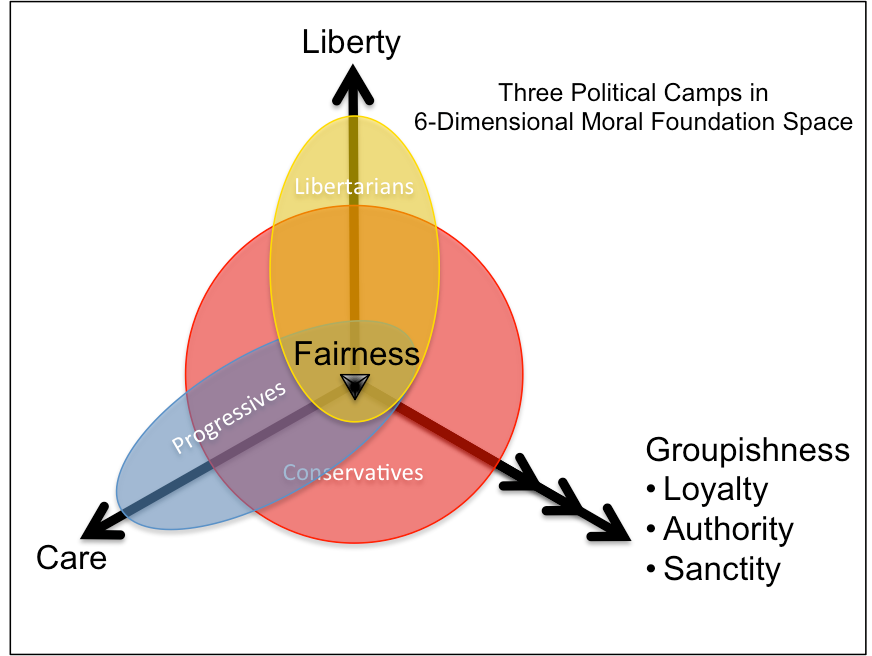A Genealogy of Self-Interest: Machiavelli and Hobbes
This is the third post in my series where I appropriate Jerry Muller’s lecture series “Thinking About Capitalism” to bring socioeconomics and intellectual history to Jonathan Haidt’s social-psychological account of political differences. Briefly, on the right is a very rough, graphical depiction of Haidt’s tripartite political taxonomy. On the left is my taxonomy which is (with huge caveats that I won’t elaborate upon here) the vertical mirror image of Haidt’s:
Paternalism = Theocratic Chiefdom (Traditional Segmentation)
Abs. = Absolute Monarchy
Const. = Constitutional Monarchy
Individualism = Libertarianism (Classical Liberalism)
Welf. = Welfare State Liberalism
Soc. = Socialism
Fraternalism = Anarchism (“Utopian” Communism)
Mult. = Multi-Cultural Humanism
Civ. = Civic Republicanism (Aristocratic Humanism)
Nat. = Nationalism
To be sure, no 2-dimensional political spectrum could ever include every nuance or exception to every rule. As such, these circles and boundaries are suggestive, high-level generalizations intended to function as entry points and primers rather than the definitive, last word on any such position. (more…)



